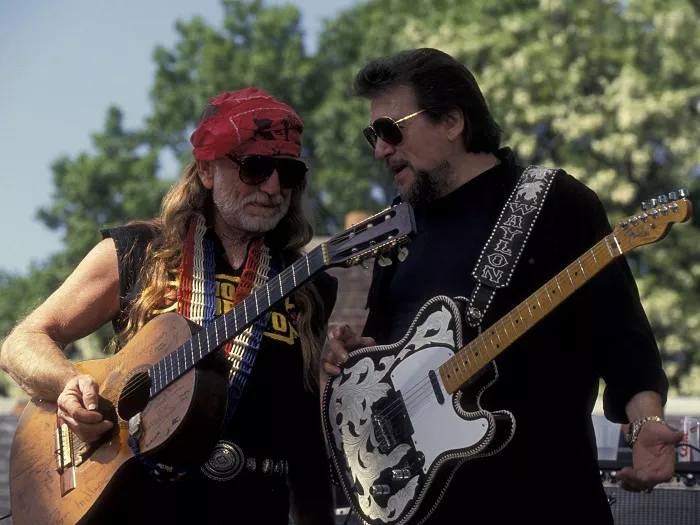In the vast landscape of music genres, Western and Country music stand out as distinct and vibrant expressions of culture, tradition, and storytelling. While both genres have roots deeply embedded in American history, they each carry unique characteristics that set them apart. In this comprehensive exploration, we delve into the nuances and differences between Western and Country music, unraveling their histories, musical styles, themes, and cultural influences.
1. Origins and Historical Background
Western Music: Honoring the Frontier Spirit
Western music, also known as Western Swing or Cowboy music, traces its origins to the late 19th and early 20th centuries, reflecting the rugged spirit of the American frontier. It encompasses a wide range of musical styles, including cowboy ballads, ranchera, and the lively rhythms of Western Swing. The iconic sound of Western music often features instruments such as the guitar, fiddle, banjo, and harmonica, creating a melodic tapestry that evokes images of vast prairies, cattle drives, and the wild west.
The roots of Western music can be found in the folk songs of early settlers, Native American influences, and the cultural fusion that emerged in frontier towns and cowboy camps. Pioneering artists like Gene Autry, Roy Rogers, and Bob Wills played pivotal roles in popularizing Western music, blending elements of country, jazz, blues, and Mexican music to create a distinctive sound that resonated across the American West.
Country Music: Heartfelt Tales of Life and Love
Country music, often referred to as “Country & Western,” has its origins in the rural landscapes of the southern United States, particularly in regions like Appalachia, the Deep South, and Texas. Emerging in the early 20th century, country music is characterized by its narrative lyrics, heartfelt storytelling, and emotional authenticity. The genre’s themes revolve around everyday life experiences, love, heartache, resilience, and the beauty of rural living.
The musical instrumentation in country music typically includes acoustic guitars, fiddles, steel guitars, and occasionally, elements of rock and pop. Early pioneers of country music such as Hank Williams, Patsy Cline, Johnny Cash, and Dolly Parton laid the foundation for the genre’s popularity, infusing their songs with raw emotion and relatable tales that spoke to audiences across generations.
See Also: Bluegrass, Country, and Folk Music: What Do They Have in Common?
2. Musical Styles and Characteristics
Western Music: Lively Rhythms and Swing
Western music is characterized by its upbeat tempo, lively rhythms, and danceable melodies. The influence of jazz and swing music is evident in Western Swing, a subgenre known for its energetic fiddle tunes, syncopated rhythms, and improvisational solos. The use of instruments like the steel guitar adds a distinctive twang to Western music, creating a sound that is both nostalgic and timeless.
In addition to Western Swing, cowboy ballads and traditional folk songs are integral parts of the Western music repertoire. These songs often tell stories of cowboy life, love on the frontier, and the rugged beauty of the American West. The lyrical themes range from adventure and bravery to longing and nostalgia, capturing the essence of a bygone era.
Country Music: Soulful Storytelling and Emotional Depth
Country music is renowned for its soulful storytelling, heartfelt lyrics, and emotional depth. The genre encompasses a wide range of styles, including classic country, honky-tonk, bluegrass, and contemporary country-pop. What unites these diverse styles is the emphasis on storytelling and connecting with the listener on a personal level.
Classic country songs often explore themes of love and heartbreak, rural life, family, and the human experience. Artists like Loretta Lynn, Merle Haggard, Willie Nelson, and Tammy Wynette are celebrated for their ability to convey raw emotion and vulnerability through their music. From tear-jerking ballads to foot-stomping anthems, country music resonates with audiences for its authenticity and relatability.
3. Cultural Influences and Impact
Western Music: Embracing Cultural Diversity
Western music reflects a tapestry of cultural influences, drawing inspiration from Native American, Mexican, African American, and European musical traditions. The fusion of these diverse influences gives Western music its rich and dynamic sound, showcasing the melting pot of cultures that shaped the American West.
Over the years, Western music has evolved and adapted, embracing new musical styles while preserving its roots. Modern Western artists like Asleep at the Wheel, Riders in the Sky, and Marty Robbins continue to honor the legacy of Western music while adding contemporary elements to keep the genre vibrant and relevant.
Country Music: From Heartland Roots to Global Stage
Country music’s impact transcends borders, resonating with audiences worldwide. From its humble beginnings in rural America, country music has evolved into a global phenomenon, influencing artists across genres and cultures. The genre’s themes of love, resilience, and storytelling have universal appeal, making it a genre that transcends cultural boundaries.
Contemporary country artists such as Taylor Swift, Luke Bryan, Carrie Underwood, and Blake Shelton have brought country music to new heights of popularity, blending traditional sounds with modern production techniques. The genre’s ability to evolve while staying true to its roots is a testament to its enduring appeal and cultural significance.
See Also: Top 20 Country Music Stations You Should Know
Conclusion
In conclusion, Western and Country music are two distinct yet interconnected genres that celebrate the diversity and richness of American musical heritage. While Western music pays homage to the frontier spirit and cultural fusion of the American West, Country music delves into heartfelt storytelling and emotional authenticity rooted in rural life. Both genres continue to evolve, leaving an indelible mark on the world of music and inspiring generations of artists and listeners alike.

